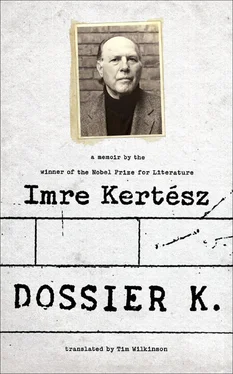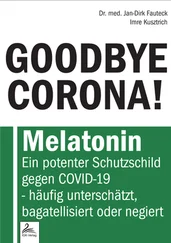Nice! But what can one learn from the story that one didn’t know already?
As best I recall, you asked me how I had managed to “marginalize” myself in the intellectual life of Hungary. As you can see, I didn’t have to try too hard. The Kádár regime’s scale of values functioned like a well-oiled machine, more or less automatically, quite independent even of the people who operated it. Orwellian doublethink was so self-evident a feature of life in Hungary that it could not be shaken by any private convictions or opinions.
So how could personal convictions or opinions exist, or indeed be articulated?
By totally separating them from the “must-know” region of the brain, the sphere of practical action. The blame for any consequences of that could be shifted onto the existing world order, the dictatorship, so nobody personally felt themselves as being dishonest.
Or crazy .
Quite the reverse, since they had pragmatic sense on their side; in Hungary, only life’s cavillers and dissidents could be crazy.
I found an intriguing entry in Galley Boat-Log in which, back in 1964, you wrote down a quotation both in the original English and in Hungarian translation: “He was a lonely ghost uttering a truth that nobody would ever hear. But so long as he uttered it, in some obscure way the continuity was not broken. It was not by making himself heard but by staying sane that you carried on the human heritage.” And you end by attributing it to Shakespeare .
It’s actually Orwell. 34
But you wrote Shakespeare, presumably out of caution .
“Dictatorship schizophrenia,” as I said. In case my notebooks were gone through.
Those written traces of the struggle you were waging for your intellectual self-preservation .
Those notes were enormously important for me at the time.
And also to preserve your sanity. As I see it, that was ultimately the most difficult thing of all for you in the Kádár world: to keep a level head. If there is any poetry in Galley Boat-Log then it springs from the struggle you were waging to keep a sane mind … But let’s now switch to light entertainment. Would you care to say how you became the author of the book for a number of much-performed musicals, popular light comedies?
It’s been done to death. I’ve already covered that a hundred times.
I came across the following lines in the frame novel of Fiasco: “I wrote a novel, in the meantime producing dialogues for musical comedies, each more inane than the last, in order to make a livelihood (hoodwinking my wife who, in the semi-gloom of the theatre auditorium at “my premieres,” would wait for me, wearing the mid-grey suit that had been specially tailored for me for such occasions, to take my place before the curtains in a storm of applause, and she would imagine that our beached life would finally work free itself from the shoals after all); but I, after assiduously putting in appearances at the pertinent branch of the National Savings Bank to pick up the not inconsiderable royalties due for this claptrap, would immediately sneak home with the guilty conscience of a thief to write a novel anew …” That makes it sound rather as though writing farces became your real job and you considered novel-writing a form of truancy, of bunking-off from school .
As indeed it was. In practice, I wouldn’t have been able to give an excuse for it that was any better than I could have given for stamp-collecting or breeding exotic birds.
Was that because you were lacking in self-confidence, or more because you suspected that you would be unable to convince those around you?
Incontrovertibly, I lack a prophet’s powers of persuasion. But then what could I have said? Just wait and you’ll find out just who I am? Meanwhile just be so kind as to carry on fending for me.
But she was your wife, and she loved you?
When it comes down to it, in the end we are on our own, and there can be no kidding oneself in that respect. “A painter paints a picture with the same feeling as that with which a criminal commits a crime,” Degas said. 35Once I start to work the world becomes my enemy …
That certainly sounds rather hard-nosed. Incidentally, I heard that not so long ago one of the Budapest theatres offered to stage one of your old pieces .
I had a hard job talking them out of it.
Why wouldn’t you agree to the staging?
Look, at the time they were written those pieces had a single practical purpose: making a livelihood. As far as their intellectual content is concerned, if I may put it this way, not a molecule comes from me.
Where on earth did you get the idea of earning money from light comedy pieces, anyway?
I’ve already mentioned that I was one of a small circle of ambitious young people who, at the height of the Stalinist era, used to analyze the plays of Ferenc Molnár.
Sziklai, the comedy writer protagonist of Fiasco, went abroad …
My friend, Kállai, on the other hand, one of life’s flesh-and-blood heroes, stayed in Budapest. And he realized his dream by becoming a well-known playwright, one of whose plays had an uninterrupted run of four hundred performances in one of the city theatres. To keep the story short, he turned up at our Török Street flat one freezing afternoon in the winter of 1957–58, pushed aside the papers, sharpened pencils, and erasers that were spread out on my wonky table, and reminded me that a few years before I had told him about a four-hand comedy set in a single scene. Had I written it down? The hell I had written it down! Then I should do so, and be quick about it. I haven’t got the time; I’m writing a novel. The two are not mutually exclusive. What was the matter: Did I want to die of starvation? That’s a powerful reason, but I don’t know how to write a play. We’ll write it together. But what if I simply can’t get my head round doing it: for instance, just can’t hit upon a plot? We’ll just have to hit upon one together!
And did you?
We did. After that I was able to write the dialogues off my own bat.
But why was the piece so urgent?
A fair few actors were banned from making regular stage appearances after the 1956 Uprising. Some of them looked around for other occupations, whereas others banded together into casual “companies” and diligently went round the country, hiring local halls and performing some harmless play. A four-hander comedy that played in a single scene would fit into even a small café.
I see. And the cultural authorities didn’t raise any objections?
Quite the reverse. The by then gradually stabilizing Kádár regime had need of laughter, of light, apolitical entertainment, a Kakanian peacetime mood. Revolting, isn’t it?
That it is. So your pieces, with their “happy endings,” contributed to upholding the conformity that you radically disavowed via your literary works and your entire lifestyle .
That’s a well-organized dictatorship for you! The need to make a livelihood turned me into a collaborator.
“Life is either a demonstration or a collaboration,” you write in Liquidation.
That’s what I mean. One day I would demonstrate by writing my novel, the next day collaborate by writing bilge. That just underlines one thing I said earlier: the scale of values of the Kádár world spread to everyone and everything, just like an epidemic. No one was exempt or immune.
But seriously, did writing these skits cause you real soul-searching?
Not at all! I looked on it as a sort of prank by which I made a living.
So, you would turn up at the first nights then with all the scruples of a thief …
Читать дальше












